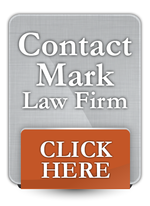CEPA is the New Jersey Conscientious Employee Protection Act. This Act provides protections to employees, so that an employer:
Shall not take any retaliatory action against an employee because the employee discloses, or threatens to disclose, to a supervisor or to a public body an activity, policy or practice of the employer... that the employee reasonably believes is in violation of a law, or a rule or regulation promulgated pursuant to law... or who objects to, or refuses to participate in any activity, policy or practice which the employee reasonably believes is in violation of a law, or a rule or regulation promulgated pursuant to law.... or is incompatible with a clear mandate of public policy concerning public health, safety or welfare or protection of the environment.
In order for you to establish a prima facie case of discriminatory retaliation under CEPA, he must show:
•1. He or she reasonably believed that his or her employer's conduct was violating either a law, rule, or regulation promulgated pursuant to law, or a clear mandate of public policy;
•2. He or she performed a "whistle-blowing" activity described in N.J.S.A. 34:19-3[];
•3. An adverse employment action was taken against him or her; and
•4. A causal connection exists between the whistle-blowing activity and the adverse employment action.
These four requirements are to be liberally construed in order to further CEPA's goal of protecting and encouraging employees to report illegal or unethical workplace activities . . .
The threshold question in a CEPA case brought under these sections is whether an employee has identified either a law, or a rule or regulation promulgated pursuant to law or a clear mandate of public policy concerning the public health, safety or welfare, which the employer has allegedly violated. So, what would be a source of public policy? It would be something related to the United States and New Jersey Constitution; federal and state laws and administrative rules, regulations, and decisions; the common law and specific judicial decisions; and in certain cases, professional codes of ethics." But, it must be a "clear mandate" and not an issue of confusion or vagueness.
Therefore, to determine whether a has presented a viable CEPA claim, a trial court will first determine what the enunciated and specific terms of a statute or regulation, or a clear expression of public policy, which is alleged to be violated. Accordingly, if you identify a clear mandate of public policy, there is no need to consider whether you have adequate evidence that would support a finding that he or she "reasonably believed" defendant's conduct violated public policy. The determination of whether there is a clear mandate of law rests with the Judge, who will hear the issues before it goes to the Court.
One nice aspect of the NJ CEPA law is that you do not need not show an actual violation of law occurred, but rather you only need to demonstrate facts that would support an "objectively reasonable" belief that a violation has occurred.
Not only is it required that you identify that your employer's conduct violated a law, rule, regulation, or clear mandate of public policy, that you reasonably believed occurred, but that you actually performed a "whistle-blowing" activity. This means that you are required to report the wrongdoing to your supervisor (or any supervisor of the company) or an outside agency (such as OSHA). Finally, even if you identify a wrongdoing, reasonably believed that the wrongdoing occurred, and that you reported the wrongdoing to your supervisor or outside reporting agency, there is one more step. You must have suffered an adverse employment action, and a causal relationship must exist between the whistle-blowing activity and the adverse employment action. Frankly, if you are a "whistleblower" and remain employed with no change in your compensation, your case may be for not as you cannot meet the last prong of the CEPA requirements.
The New Jersey Law Against Discrimination protects employees from being victims of discrimination, retaliation, and hostile work environments, however it can be difficult to determine what situations fall under those protections. If you feel that you have been subjected to any of these events, please contact Mark Law Firm, LLC at (973) 440-2311, (908) 626-1001 or (201) 787-9406, or you can tell us your story by clicking the "contact us" page. We represent clients throughout Jersey City, Newark and Basking Ridge.



.svg)